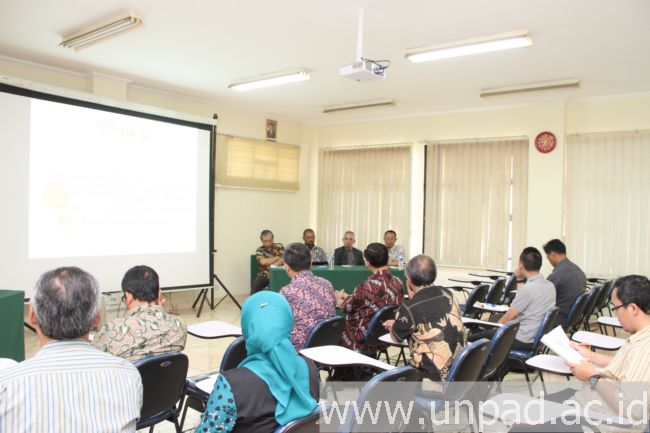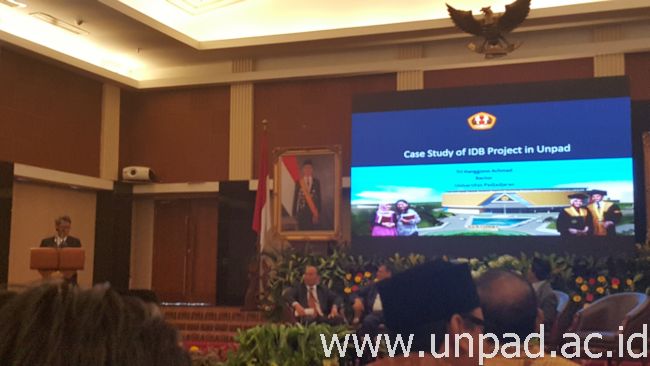[Unpad.ac.id, 24/09/2013] Indonesia has at least 130 active volcanoes, which is the largest number in the world, and that could possibly erupt at any time. Viewed from the potential catastrophe caused by a volcanic eruption, how far has Indonesia prepared for the disaster relief mechanism?

The professor of Unpad Faculty Of Geological Engineering, Prof. (EM). Dr. Adjat Sudrajat said that in addition to a large number of active volcanoes as well as the high frequency and eruption magnitude, most people still do not understand how a good disaster management mechanism works if an eruption occurs. This is based on the density of the population in the region of fertile volcanic mountain.
“A volcano is actually very supportive of life. The surrounding land is very fertile, which attract people to live around the mountain. The term for this is “volcano centric,”” said Prof. Adjat during discussions in the event “FGD Pengurangan Risiko Bencana Erupsi Gunung Api” on Tuesday (09/24/) in Bandung.
The factor of land hunger is coupled with the low accessibility and communication to the public about how the exact mechanism works when an eruption occurs. The Government also has a role to fix the activities of the volcano eruption disaster mitigation.
As a country located in the ring of fire, the science of volcanology here has considerably evolved with better technology. There have been many Volcanologists here, so that mitigation is increasingly easy to do. Prof. Adjat said, through the research conducted by the experts on this field, we are able to estimate how big a risk of a volcano eruption based on density, frequency, as well as explosion magnitude.
One of the mitigation efforts carried out is relocating communities that are in the path of the eruption to a safe area. However, Prof. Adjat said that relocation effort is not always effective because, despite its danger, volcanoes remain a blessing for the lives of the people residing around them.
“Leaving a location already occupied so long is a tough ordeal. People who have lived for so long around an eruption area would not be comfortable if they get relocated to the city. The factor of land hunger is one of the causes,” explained Prof. Adjat.
He further explained that if relocation is required, choose a dynamic, effective, and inhumane relocation plan. This is certainly to be promulgated in advance, long before the eruption occurs. “Do a good promulgation through participatory techniques, “he added.
However in this case the Government should act quickly, employ the standard procedure and reduce the unnecessary bureaucracy. Through organizations such as SAR, PNPB, and BPBD, Prof. Adjat suggested to form the “Emergency Fund”. This Fund is used if at any time an eruption occurs, the organization can directly help without waiting for assistance from the Government.
“Apart from that, incorporating disaster mitigation into school subjects is a good idea. It could be a way to introduce the risk of volcanic eruptions as part of life,” he said.
Cooperation with Universities
In the meantime, the expert staff of the National Disaster Mitigation Agency (BNPB), Eko Teguh Paripurno Dr. said that the role of universities is effective in tackling the disastrous eruption of volcanoes. They help support the paradigm that disaster relief basically involves many parties.
“There have been many universities in Indonesia working with disaster relief organizations. Each university is designated as a center for a study for a particular disaster, “said Dr. Eco.
The mechanism conducted by BNPB is that every disaster study there are some teams that are included in academic texts, namely a team of substance (involving experts from several colleges), a team of authors (experts from colleges who are appointed), assisting team (team of BNPB), and the team’s administration (the administration power was brought by the College). “Through the mechanism, it is expected that disaster relief can be improved and zero risk can be achieved,” he said.


